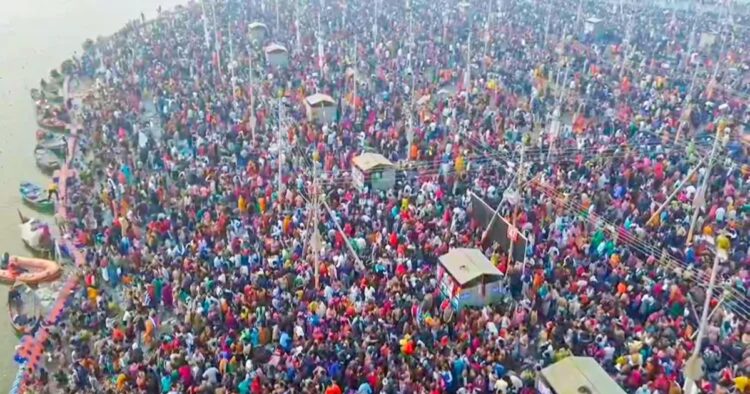The Maha Kumbh festival in Prayagraj has generated business worth over Rs 3 lakh crore (USD 360 billion), making it one of the most significant economic events in India’s history. Confederation of All India Traders (CAIT) Secretary General and Chandni Chowk MP Praveen Khandelwal emphasized the strong connection between faith and the economy, highlighting how the religious gathering has spurred trade across multiple sectors.
Held once every 144 years, the Maha Kumbh began on January 13 and will continue until February 26, attracting millions of devotees. Initial projections estimated 40 crore visitors and Rs 2 lakh crore in transactions, but with the overwhelming turnout, nearly 60 crore people are now expected, significantly boosting Uttar Pradesh’s economy and business landscape.
Economic Impact Across Multiple Sectors
The Maha Kumbh has fueled growth in various industries, including hospitality, food and beverage, transportation, religious merchandise, textiles, healthcare, and entertainment.
Demand for Maha Kumbh-themed products such as diaries, calendars, jute bags, and stationery has surged due to effective branding efforts. Additionally, religious items like puja samagri, traditional attire, and handicrafts have seen a rise in sales, benefiting local artisans and traders.
Khandelwal noted that the festival’s impact extends beyond Prayagraj, reaching towns and cities within a 150 km radius. Increased demand for transportation, lodging, and food services has provided a significant economic boost to surrounding areas.
With millions of devotees traveling to Ayodhya, Varanasi, and other pilgrimage sites, these regions have also experienced a surge in trade and tourism, strengthening local economies.
Infrastructure Development and Long-Term Benefits
To accommodate the massive influx of visitors, the Uttar Pradesh government has invested Rs 7,500 crore in infrastructure development in Prayagraj, including flyovers, roads, and underpasses. Of this, Rs 1,500 crore was allocated specifically for Maha Kumbh arrangements. This investment not only enhances the city’s facilities but also ensures long-term economic benefits by improving connectivity and accessibility for future events.
Khandelwal believes the Maha Kumbh will leave a lasting impact on India’s trade, commerce, and cultural landscape, setting a new economic benchmark. The festival has demonstrated how religious gatherings can act as powerful economic engines, creating jobs, boosting local businesses, and shaping regional economies.

















Comments